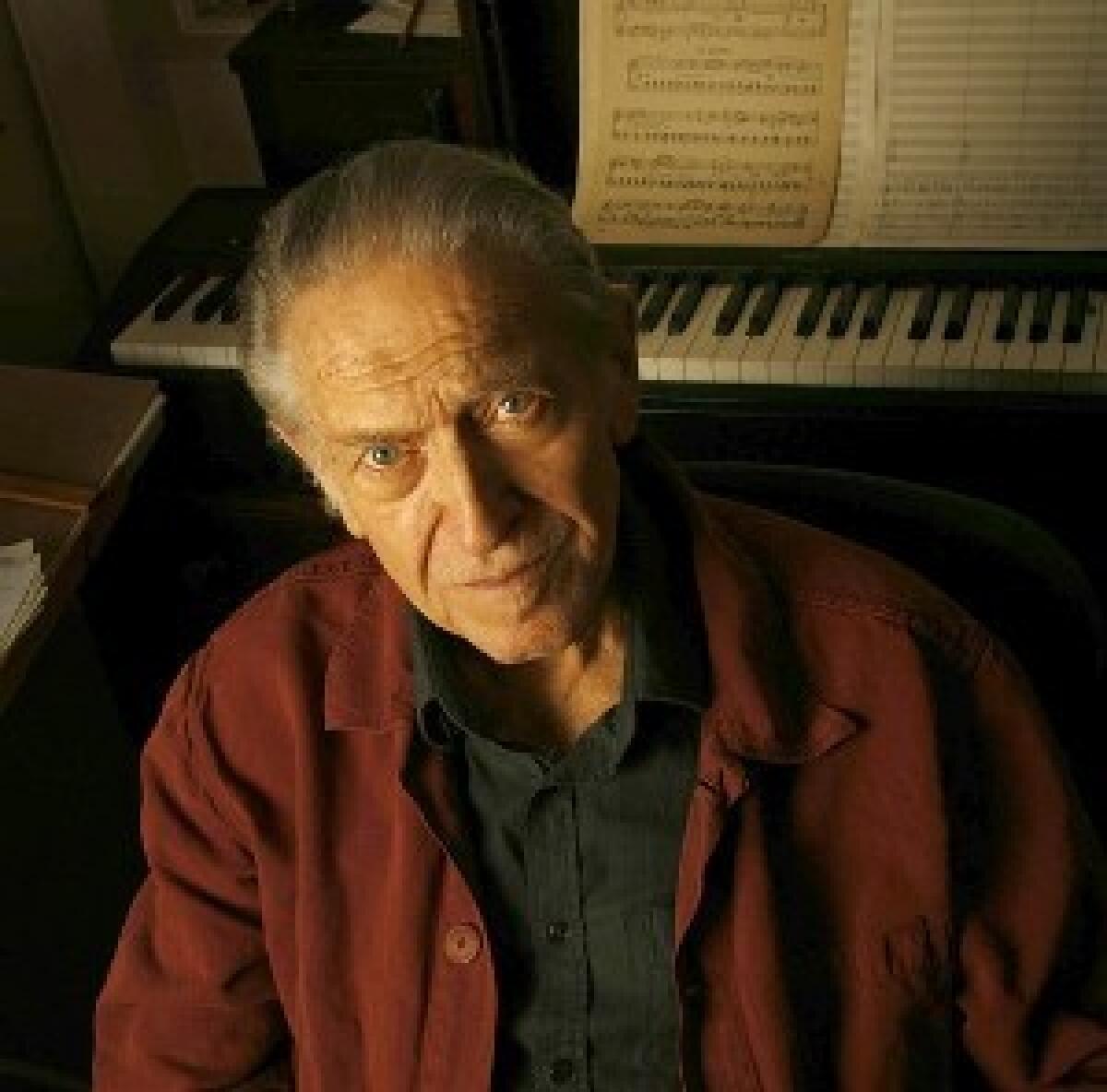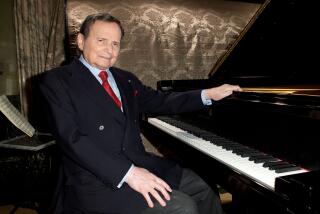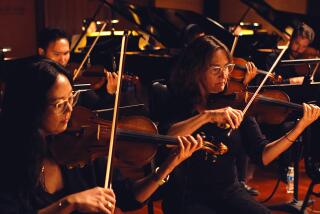Leon Kirchner dies at 90; Pulitzer-winning composer

Leon Kirchner, a Pulitzer Prize-winning composer of expressive, rigorous, atonal yet romantic music, died Thursday of congestive heart failure at his home in New York. He was 90.
A pianist and conductor as well as a composer, Kirchner stood somewhat outside the main musical currents of the late 20th century, forging his own way without being confrontational. A superb craftsman, he wrote music that was emotionally supercharged but also structurally rigorous, very much in the tradition of the Second Viennese School (Arnold Schoenberg and Alban Berg, in particular). Yet Kirchner did not turn to the organizational principles so prevalent in his day: Serialism and the dodecaphonic (or 12-tone) system remained outside his field of inquiry.
Of the prevalent trends of his time, he once wrote that “idea, the precious ore of art, is lost in the jungle of graphs, prepared tapes, feedbacks and cold stylistic minutiae.” Nonetheless, he was not above occasional experimentation.
In his String Quartet No. 3, he “set out to produce a meaningful confrontation between the ‘new’ electronic sounds and those of the traditional string quartet,” writing a separate line for electronic tape. The work won him a Pulitzer Prize in 1967 -- marking the first time the Pulitzer went to a piece using electronics.
Leon Kirchner was born in Brooklyn, N.Y., on Jan. 24, 1919, and began studying piano at 4. When he was 9, his family moved to Los Angeles, where he was able to benefit from contact with European musicians who had fled Hitler’s Germany. Studying at L.A. City College, he won the attention of Ernst Toch, who recommended him to Schoenberg, another local. Schoenberg remained one of his strongest influences.
Kirchner did graduate work with Ernest Bloch at UC Berkeley, taking a hiatus to study with Roger Sessions in New York and to serve in the Army. He married Gertrude Schoenberg (no relation to Arnold Schoenberg) in 1949. In 1954, he took a position at Mills College in Oakland and in 1961 went on to teach at Harvard, where he remained until his retirement in 1989.
His most popular course combined musical analysis and performance by students such as cellist Yo-Yo Ma and composer John Adams. He also founded the Harvard Chamber Orchestra.
In his music, Kirchner gradually moved from the large-scale hyperexpressivity of earlier pieces, such as his first piano sonata (1948) and his two piano concertos (1953 and 1963), to more compact utterances. (His fourth and final string quartet, from 2006, is only 13 minutes long.)
Kirchner devoted more than a decade to the composition of “Lily,” his sole opera, based on Saul Bellow’s novel “Henderson the Rain King.” The premiere at New York City Opera in 1977 was accounted a disaster by critics, which was a bitter blow to its creator. He later recast some of the music into other pieces, including a 20-minute work for soprano and chamber orchestra.
In 1997, the Boston Symphony Orchestra premiered “Of Things Exactly as They Are,” a large-scale work for soloists, chorus and orchestra that Boston Globe critic Richard Dyer called a “career-crowning achievement.”
Kirchner continued composing until the end of his life. His final orchestral work, “The Forbidden,” was given its premiere by James Levine and the Boston Symphony in October 2008. The piece was conceived as part of a loose triptych, along with Kirchner’s last string quartet and third piano sonata, exploring techniques, such as the diminished seventh interval, that were “forbidden” to composers in certain epochs.
Kirchner’s wife died in 1999, and for the final years of his life he lived in New York with companion Sally Wardwell. Other survivors include two children and a stepdaughter from his first marriage; a brother; and a granddaughter.
Midgette writes for the Washington Post.
More to Read
The biggest entertainment stories
Get our big stories about Hollywood, film, television, music, arts, culture and more right in your inbox as soon as they publish.
You may occasionally receive promotional content from the Los Angeles Times.






